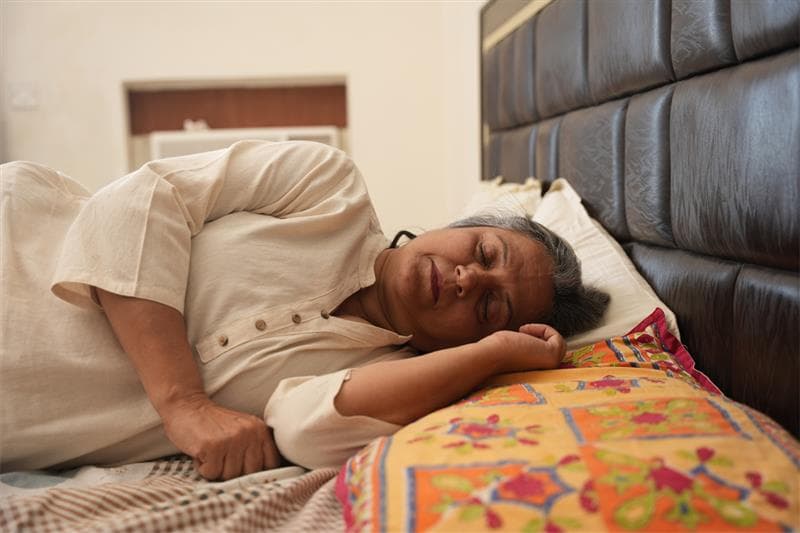
Loading...

Loading...
2025-08-25
Antara
Sleep patterns change as we age and these changes aren't always positive. Good sleep does more than just refresh seniors. It can protect your heart health.

Our bodies naturally repair themselves during sleep. A healthy person's blood pressure drops 10-20% while sleeping, which doctors call nocturnal dipping. This drop can make your heart healthy. Heart risks increase rapidly when this pattern gets disrupted.
Research shows that older adults with poor sleep quality face a higher risk of coronary heart disease compared to those who sleep well.
This article explores how sleep and heart health connect, and gives you practical tips for better heart health and possibly lowering your risk.
Sleep and heart problems affect older adults differently than others. Many seniors report sleep issues. This goes beyond simple discomfort - it poses real health risks.
Seniors face several unique challenges:
Irregular sleep patterns clearly show these effects.
Those whose bedtimes shift by more than 90 minutes each week face a higher risk of artery calcification compared to those who maintain regular sleep schedules.
Bad sleep does more than make you tired—it can quietly harm your heart. Heart health and sleep quality affect each other, as cardiovascular problems often lead to sleep issues and
vice versa.
Sleep disorders exist in many forms, and each brings its own heart risks.
Sleep Apnea is a common but dangerous condition happens when breathing stops & starts repeatedly during sleep. People who don't treat their sleep apnea double their heart attack risk. Blood pressure rises and the cardiovascular system strains due to repeated drops in oxygen levels.
If you are struggling to fall asleep, it is more than just a frustration. It puts your heart at risk. Your cardiovascular outcomes worsen when you struggle to fall asleep more than twice each week.
Your CVD risk jumps when your sleep-wake timing stays inconsistent.
Want to sleep better and protect your ageing heart? Good news - science backs several strategies that can help you develop better sleep habits:
Sleep is the lifeblood of heart health for seniors. Research proves that irregular sleep patterns substantially increase the risk of coronary artery disease. Poor sleepers face nearly double the risk compared to those who rest well. Seniors should treat sleep as a non-negotiable part of heart care, not a luxury they can give up.
Seniors can achieve the restorative sleep their hearts need by watching their evening fluid intake and limiting electronic devices before bedtime. At Antara Care homes, a proper routine is formed to manage all these things because sleep and heart health share a two-way relationship that needs our complete attention. Seniors who make sleep a priority give their hearts a fighting chance against age-related challenges. Those extra minutes of quality sleep might be the most powerful heart medicine available—without a prescription or side effects.
Poor sleep quality significantly increases the risk of coronary heart disease in seniors. Your cardiovascular outcomes worsen when you struggle to fall asleep more than twice each week.
You need 7-9 hours of quality sleep each night. It will keep your heart healthy.
Yes, sleep apnea and insomnia can cause maximum damage to your heart.
Irregular sleep patterns significantly increase the risk of cardiovascular problems. Seniors who sleep less than 5 hours have a higher risk of getting cardiovascular diseases.

How Physiotherapy & Rehabilitation Improve Life in Assisted ...

Is It Normal If Parents Struggle After Moving to an Assisted...

What Happens When Families Delay Assisted Living for Parents...

10 healthy meals for seniors that are Quick & Easy to cook

Understanding the Role of Family Involvement in Assisted Liv...

Please fill in the form and submit the details to request an appointment.